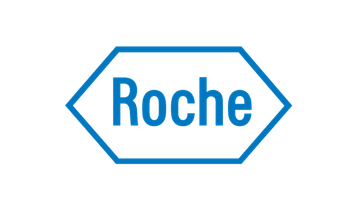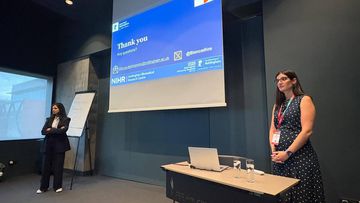The importance of assessing nutritional health in patients with multiple sclerosis: Mona Bostick, RDN LDN
Event reportsAmy Harbour
Multiple sclerosis nurse specialist, Southern Health NHS Foundation Trust
Aims of the session
The aims of this article are to:
- Define the role of health literacy and food literacy in health outcomes
- Review tools to facilitate nutritional conversations with people with multiple sclerosis (MS)
- Review nutritional risk indicators beyond body mass index (BMI)
- Review unintended consequences of popular ‘diets’
- Outline the role of the registered dietician
Eating well
Mona began by posing the question, ‘Does eating well mean something different when ‘living with MS’?’ The simple answer to this is no, she said, although research is currently being undertaken in this area. It also depends who you ask. A person who practices conventional medicine might say no, but a person practising unconventional medicine might say yes and then try to sell you their products.
The nutrition care process (NCP) is the approach of the dietician, who will take the following steps:
- Take a nutrition assessment history
- Make a nutrition diagnosis – which is different from a medical diagnosis
- Make a nutrition intervention
- Monitor and evaluate the nutritional status
Sharing information
Mona shared how important it is to share health and food literacy with a person living with MS (PwMS); this collaboration helps with the health outcome. Food literacy should encourage a PwMS to plan and manage, select food, prepare food and enjoy food in a healthy way.
She noted that there are tools for MS nurses to use. One of these is a ‘determine checklist’ – this is a tool to be completed by patients, and is rated out of 6. The score will help facilitate a conversation with regard to food and possible referral.
Mona suggested considering a therapeutic diet, one which helps with a medical diagnosis. Points to consider could be:
- Feeding tubes
- Food textures
- Nutrients included.
- Allergies and intolerances
Is there a specific therapeutic diet for MS?, Mona posed. No, she responded, but there are evidence-based diets for co-morbidities which people with MS may have:
- Hypertension
- CVD
- Diabetes
- Bone health issues
- Eating disorders
Weight stigma
Weight stigma also has an influence on receiving medical treatment. Avoidance of medical care can lead to delayed diagnosis or even misdiagnosis.
The cycle of obesity causing stress, this being expressed in increased eating, and resulting in further weight gain, is often seen.
Weight cycling is repeated weight loss and gain. Typically, weight loss is greatest after 6 months of a slimming diet. This normally increases again after a year 1 and the rate of weight gain increases over time. The health effects of weight cycling are higher mortality and a range of complications.
Is there a weight inclusive approach? asked Mona. Her response was yes. Health at Every Size (HAES) is an approach which includes dieticians and mental health professionals. Its principles are:
- Weight inclusivity
- Health enhancement
- Respectful care
- Eating for wellbeing
- Life-enhancing physical movement
Its measures used to assess health outcomes are everything except weight, BMI or other body size/ body composition parameters.
Orthorexia is the adaptation of ‘clean’ eating habits which is often related to health conditions, this is becoming more common, although it is hard to predict figures as there is not yet a diagnostic tool available for this.
Mona explained that the role of the dietician is vital. There needs to be clinical nutritional assessment, comprehensive nutritional intervention and a tailored nutritional programme, coupled with encouraging health promotion behaviours and engaging other team members. The benefits of this are patient safety, patient satisfaction and improved health outcomes.
Conclusion
The take home message of this session was:
The health benefits of eating well and physical activity are independent of weight loss.
In conclusion, Mona was clear that the MS clinician should consider health food literacy, implement the ‘determine checklist’ and research HAES. BMI is only one of many health indications and it is important to include dieticians.
The full CMSC session is available to watch here via NeurologyLive.

This activity has been sponsored by Roche Products Limited. Roche Products Limited has had no control over the educational content of this activity.
Related articles
Encouraging excellence, developing leaders, inspiring change
MS Academy was established in 2016 and in that time has accomplished a huge amount with exciting feedback demonstrating delegates feel inspired and energised along their personal and service development journeys. The various different levels of specialist MS training we offer are dedicated to case-based learning and practical application of cutting edge research.



